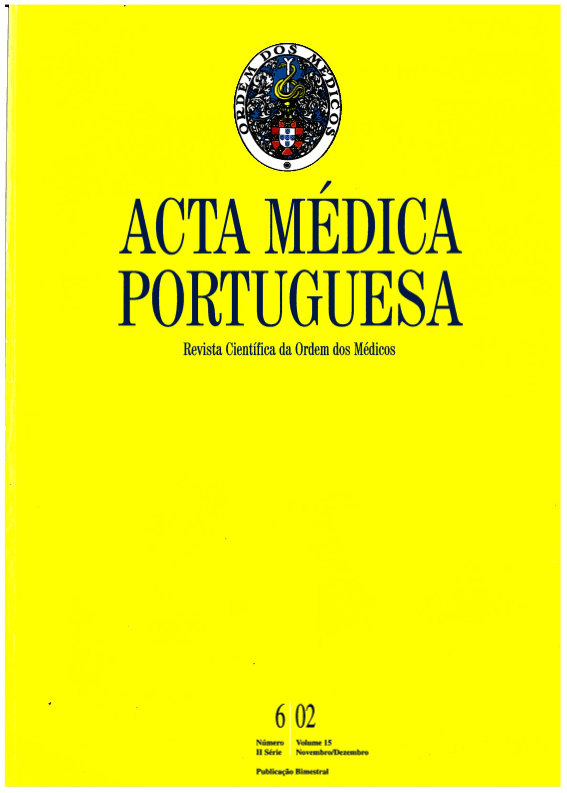Défice de glicose-6-fosfato desidrogenase, ictericia neonatal e sindroma de Gilbert.
DOI:
https://doi.org/10.20344/amp.1986Resumo
The aim of this work was to evaluate the influence of abnormal UDP-glucoronosyltransferase-1 (UGT1A1) gene variant, on the incidence and severity of neonatal hyperbilirubinemia, in glucose-6-phosphate dehydrogenase (G6PD) deficient newborns. The A(TA)nTAA region in the promoter of the UGT1A1 gene was analysed in 20 children with G6PD deficiency. Fourteen of these children had the African type variant (G6PDA-) and 6 had different variants (G6PDNara, G6PDGuadalajara, G6PDDurham, G6PDTomah, G6PDAveiro e G6PDNashville) related to chronic nonspherocytic haemolytic anaemia (CNSHA). The existence of a positive history of neonatal hyperbilirubinemia, as well as its severity was registered. The incidence of neonatal hyperbilirubinemia was increased in this group of children (90%) and was not associated with abnormal alleles of the UGT1A1 gene. It was not possible to assess the influence of abnormal alleles in the severity of the neonatal hyperbilirubinemia. However, these abnormal alleles did not account for the severity of jaundice in children who presented variants related to CNSHA, since 5 were treated with an exchange transfusion and none presented abnormal alleles.Downloads
Downloads
Como Citar
Edição
Secção
Licença
Todos os artigos publicados na AMP são de acesso aberto e cumprem os requisitos das agências de financiamento ou instituições académicas. Relativamente à utilização por terceiros a AMP rege-se pelos termos da licença Creative Commons ‘Atribuição – Uso Não-Comercial – (CC-BY-NC)’.
É da responsabilidade do autor obter permissão para reproduzir figuras, tabelas, etc., de outras publicações. Após a aceitação de um artigo, os autores serão convidados a preencher uma “Declaração de Responsabilidade Autoral e Partilha de Direitos de Autor “(http://www.actamedicaportuguesa.com/info/AMP-NormasPublicacao.pdf) e a “Declaração de Potenciais Conflitos de Interesse” (http://www.icmje.org/conflicts-of-interest) do ICMJE. Será enviado um e-mail ao autor correspondente, confirmando a receção do manuscrito.
Após a publicação, os autores ficam autorizados a disponibilizar os seus artigos em repositórios das suas instituições de origem, desde que mencionem sempre onde foram publicados e de acordo com a licença Creative Commons









